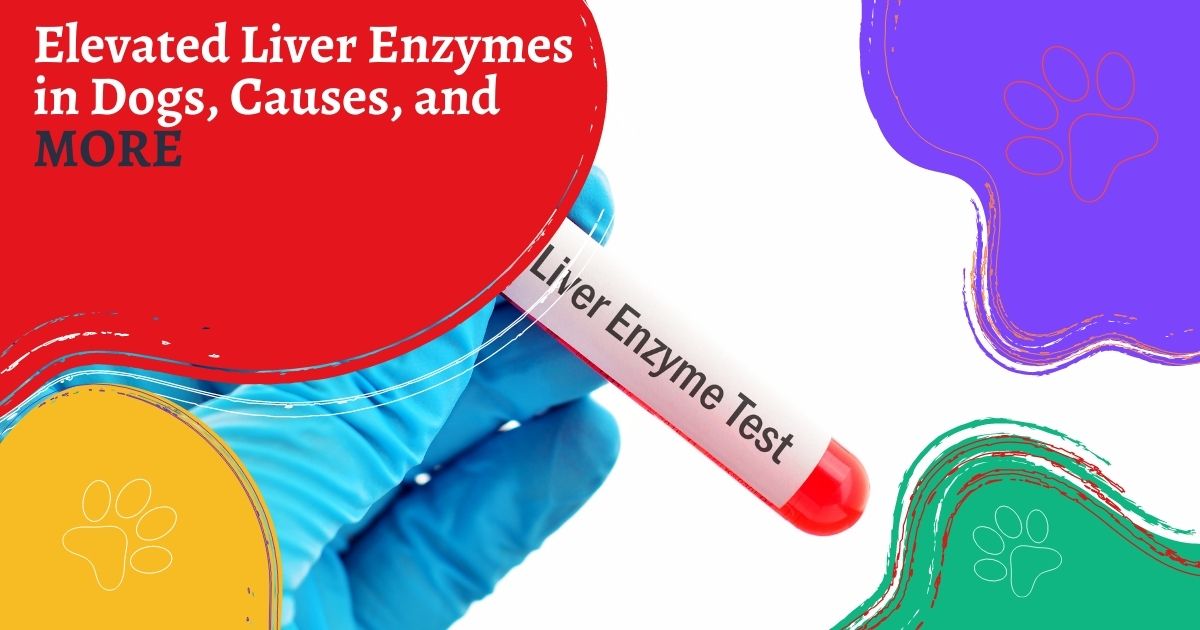
Abnormal liver enzymes
The presence of abnormal liver enzymes in a blood test signifies that the liver is under stress or experiencing damage, impacting its ability to function correctly. The liver enzymes most frequently evaluated are Alanine Transaminase (ALT), Aspartate Transaminase (AST), Alkaline Phosphatase (ALP), and Gamma-glutamyl Transferase (GGT). Elevated levels of these enzymes indicate the presence of inflammation, injury, or liver diseases. Elevated ALT and AST levels suggest liver cell injury or death. Increased ALP levels may indicate bile duct obstruction or certain bone disorders. Elevated GGT levels are associated with alcohol consumption, liver disease, or bile duct obstruction
Causes of Abnormal Liver Enzymes
Several conditions and factors can lead to elevated liver enzymes, including but not limited to:
- Alcoholic and Non-Alcoholic Fatty Liver Disease (NAFLD): Accumulation of fat in liver cells, leading to inflammation and damage.
- Viral Hepatitis: Infections such as hepatitis A, B, and C can cause liver inflammation and elevate enzyme levels.
- Medications and Toxins: Certain prescription medications, over-the-counter drugs, and substances like alcohol can cause liver damage.
- Autoimmune Liver Diseases: Conditions where the immune system attacks the liver, including autoimmune hepatitis, primary biliary cholangitis, and primary sclerosing cholangitis.
- Metabolic Disorders: Such as hemochromatosis (excess iron storage) and Wilson’s disease (excess copper storage).
- Liver Cirrhosis: Advanced scarring of the liver due to various liver diseases.
- Bile Duct Obstructions: Blockages in the ducts that carry bile from the liver can lead to increased ALP levels.
- Liver Cancer: Primary or metastatic liver cancer can affect liver enzyme levels.
Symptoms
Many individuals with elevated liver enzymes do not exhibit symptoms, especially in the early stages of liver disease. When symptoms do appear, they may include fatigue, weight loss, jaundice (yellowing of the skin and eyes), dark urine, light-colored stools, abdominal pain or swelling, and itching.
Diagnosis
In addition to liver enzyme tests, healthcare providers may use other tests to diagnose the underlying cause of the abnormal results, including:
- Complete Blood Count (CBC): To assess overall health and detect signs of infection.
- Imaging Tests: Such as ultrasound, CT scans, or MRI to visualize the liver and detect abnormalities like fatty liver, tumors, or cysts.
- Liver Biopsy: To evaluate the extent of liver damage and inflammation by examining a small tissue sample under a microscope.
- Viral Hepatitis Tests: To check for hepatitis infections.
- Autoantibody Tests: To identify autoimmune liver diseases.
Treatment
Treatment for abnormal liver enzymes focuses on addressing the underlying cause:
- Lifestyle Changes: Reducing alcohol consumption, losing weight, and adopting a healthy diet can help manage liver diseases like fatty liver disease.
- Medication Adjustments: Changing or discontinuing medications that may be causing liver damage, under medical supervision.
- Treating Infections: Using antiviral or antibiotic medications to treat viral or bacterial infections affecting the liver.
- Managing Chronic Conditions: Controlling conditions like diabetes and high cholesterol, which can contribute to liver problems.
- Autoimmune Treatments: Immunosuppressive drugs may be used for autoimmune liver diseases.
It’s essential for individuals with abnormal liver enzyme levels to work closely with their healthcare provider to determine the cause and appropriate treatment plan. Regular monitoring and lifestyle adjustments play a crucial role in managing liver health and preventing further damage.
Why Choose London Private Ultrasound?
At London Private Ultrasound, we prioritize your health and comfort. Our team of experienced radiologists and healthcare professionals are dedicated to providing the highest quality of care. Here’s why you should choose us:
- Expert Radiologists: Our team consists of highly trained and experienced radiologists who are experts in ultrasound diagnostics.
- State-of-the-Art Technology: We use the latest ultrasound machines to ensure the highest level of accuracy in our scans.
- Patient-Centered Care: We focus on creating a comfortable and stress-free environment for our patients.
- Timely Results: We understand the importance of quick diagnosis and provide fast and reliable results.
- Convenient Location: Located in the heart of London, our clinic is easily accessible.
Book Your Ultrasound Scan Today
At London Private Ultrasound, we are committed to providing high-quality diagnostic services with a patient-centered approach. Our expert radiologists and cutting-edge technology ensure that you receive the best possible care.
Don’t wait to get the answers you need. Book your abdomen or pelvic ultrasound scan today by contacting us at:
Address: 27 Welbeck Street, London, W1G 8EN
Tel: 020 7101 3377
You can also schedule an appointment online through our website. Experience the convenience, comfort, and expertise at London Private Ultrasound.
We look forward to assisting you with your healthcare needs and ensuring you receive the best possible diagnostic care.
ExcellentBased on 540 reviews Trustindex verifies that the original source of the review is Google.
Trustindex verifies that the original source of the review is Google. Jackie Supernova2024-07-16excellent service. easy to book and adjust dates if required. The staff are friendly. The clinician was attentive and informative and did a thorough investigation. Highly recommend if you need fast reliable diagnostic results.Trustindex verifies that the original source of the review is Google.
Jackie Supernova2024-07-16excellent service. easy to book and adjust dates if required. The staff are friendly. The clinician was attentive and informative and did a thorough investigation. Highly recommend if you need fast reliable diagnostic results.Trustindex verifies that the original source of the review is Google. Mostafa Hawwash2024-07-16Quick and fast and reliable. Thank youTrustindex verifies that the original source of the review is Google.
Mostafa Hawwash2024-07-16Quick and fast and reliable. Thank youTrustindex verifies that the original source of the review is Google. Aisha Fontaine2024-07-16Reza Farahmandfar, was very professional, my appointment was on time. He explained every step of the way. Definitely will book with him again.Trustindex verifies that the original source of the review is Google.
Aisha Fontaine2024-07-16Reza Farahmandfar, was very professional, my appointment was on time. He explained every step of the way. Definitely will book with him again.Trustindex verifies that the original source of the review is Google. Sammy Andrews2024-07-15Brilliant clinic. I've visited a few the last few years for various issues and London Private Ultrasound was prompt, clean, professional and reassuring. If I need anything else I will definitely go back.Trustindex verifies that the original source of the review is Google.
Sammy Andrews2024-07-15Brilliant clinic. I've visited a few the last few years for various issues and London Private Ultrasound was prompt, clean, professional and reassuring. If I need anything else I will definitely go back.Trustindex verifies that the original source of the review is Google. Matt Mawson2024-07-14Friendly, reassuring, calm manner with a easy to understand explanation of the details. Highly recommended.Trustindex verifies that the original source of the review is Google.
Matt Mawson2024-07-14Friendly, reassuring, calm manner with a easy to understand explanation of the details. Highly recommended.Trustindex verifies that the original source of the review is Google. uday singh2024-07-10I was there for my lower limb ultrasound but the quality of explanation by the doctor was so comprehensive that I decided to get a full body scan. Greatly impressed with the attention and attitude of everyone there. If anyone requires an ultrasound, in my view this is the place.Trustindex verifies that the original source of the review is Google.
uday singh2024-07-10I was there for my lower limb ultrasound but the quality of explanation by the doctor was so comprehensive that I decided to get a full body scan. Greatly impressed with the attention and attitude of everyone there. If anyone requires an ultrasound, in my view this is the place.Trustindex verifies that the original source of the review is Google. Aisha Smith2024-07-09Great experience, got an appointment within an hour. Sonographer was lovely and really reassuring and was useful to be able to see the images on the large screen while lying down.Trustindex verifies that the original source of the review is Google.
Aisha Smith2024-07-09Great experience, got an appointment within an hour. Sonographer was lovely and really reassuring and was useful to be able to see the images on the large screen while lying down.Trustindex verifies that the original source of the review is Google. Joana Macedo2024-07-08Same day scan. Very knowledgeable clinician. Thanks
Joana Macedo2024-07-08Same day scan. Very knowledgeable clinician. Thanks
London Private Ultrasound Clinic
At London Private Ultrasound all our services, our specialists and us using the latest Ultrasound technology is designed to deliver the greatest possible experience for all our patients and visitors.
We are conveniently located in Welbeck Street, a stone’s throw from the famous Harley Street and our clinic is a place where you will be welcomed by our friendly staff and feel comfortable in our safe, clean, and reassuring environment.
Address: 27 Welbeck Street, London, W1G 8EN
Tel: 020 7101 3377


